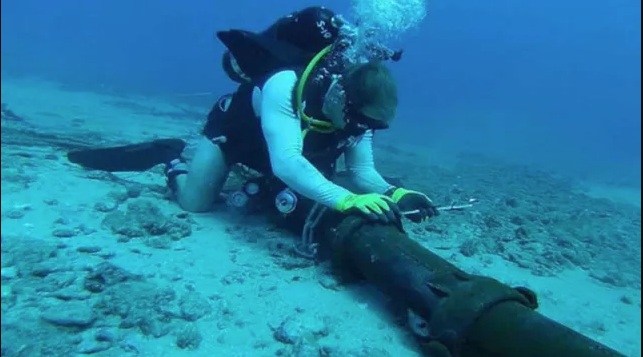Houthi rebels in the Red Sea are shifting tactics, attacking undersea internet cables after targeting freighter ships previously. This recent escalation caused significant disruptions, affecting internet traffic between Asia, Europe, and the Middle East.
The incident, confirmed by telecom company HGC Global Communications, disrupted at least 25% of internet traffic in the region. HGC refrained from assigning blame, but concerns are mounting regarding the Houthis’ potential role. Additionally, Yemeni government-linked telecom firms have warned about potential attacks on submarine cables.
The consequences of persistent attacks could be severe. The Red Sea carries a significant portion of global internet traffic, estimated at 17% according to The Guardian. Despite official denials from Houthi leadership, evidence suggests otherwise. A Houthi-affiliated Telegram post last December displayed a map of Red Sea cables alongside a veiled threat referencing Yemen’s strategic location.
The first disruption occurred on February 24th, following Yemeni government concerns about potential Houthi attacks. Internet access disruptions were observed in Djibouti and reported in Bahrain. The specific methods employed by the Houthis remain unclear, but drifting ships with dragging anchors could be a potential cause, as seen in previous incidents involving disabled vessels.
Continued disruptions in the Red Sea pose significant challenges for global telecommunications. The region is crucial for most internet traffic between Europe and East Asia, making it highly vulnerable. These concerns also complicate deploying new cables due to rising risks and insurance costs.
While telecom companies utilize multiple undersea cable systems for redundancy, the ongoing Houthi activity presents a persistent threat. Despite efforts to mitigate disruptions, the security of critical subsea infrastructure remains a major concern for the global internet landscape.
Red Sea Conflict: Threat to Global Internet Infrastructure
The conflict between Houthi rebels in the Red Sea and the Yemeni government poses a serious risk to global internet infrastructure. The potential impacts of this conflict are as follows:
Disruptions in Internet Connectivity:
Houthi rebels may target submarine internet cables, causing disruptions in internet connectivity. In an incident in February 2024, 4 submarine cables were cut, leading to a 25% drop in internet traffic between Europe, Asia and the Middle East.
Cyber Attacks:
Insurgents could launch cyberattacks on internet service providers and critical infrastructure, resulting in widespread disruptions to internet access and data loss.
Damage to Internet Infrastructure:
Submarine cables and other internet infrastructure can be damaged during conflicts, leading to prolonged and costly repairs.
Reduced Internet Security:
Conflicts can weaken the security of internet infrastructure and make it more vulnerable to cyber-attacks.
Economic and Social Impacts:
Internet connectivity disruptions and cyberattacks can have a significant impact on the global economy and society. They can cause production losses in businesses, disruptions in the financial sector and access problems on social media platforms.





